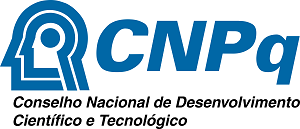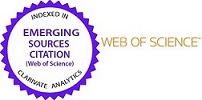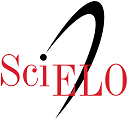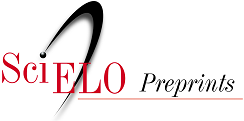Implementação da estratégia de mapeamento mental visual para melhorar a competência linguística dos alunos
DOI:
https://doi.org/10.25053/redufor.v8.e11234Palavras-chave:
Visualização de Informações, Mapa Mental, Tecnologias Digitais, Modelo Kirkpatrick, Auto-AprendizagemResumo
As oportunidades do processo educacional podem ser ampliadas por meio do uso de mecanismos inovadores. O objetivo do trabalho é determinar a eficácia do ensino como resultado da implementação da estratégia Visual Mind Mapping para melhorar a competência em língua estrangeira dos alunos. O objetivo foi alcançado usando o método teórico geral de comparação, cálculo do coeficiente de concordância, o coeficiente de eficiência, o teste de Whitney-Wilk. A aprendizagem era assegurada através do desenvolvimento de mecanismos educativos, que consistiam na visualização da informação e no desenvolvimento da atividade intelectual. O estudo de novas palavras, o uso de tecnologias digitais (Writer, Rosetta Stone, Busuu), o desenvolvimento de habilidades de comunicação e o desenvolvimento de habilidades profissionais também foram fornecidos. Verificou-se entre os alunos que o uso do Visual Mind Mapping contribui para a obtenção de um alto nível de conhecimento em um menor tempo. O foco no modelo de Kirkpatrick permitiu estabelecer que a maioria dos alunos adquiriu um alto nível de competência em língua estrangeira após testar seus conhecimentos. Os alunos têm uma atitude positiva em relação ao aprendizado usando o Visual Mind Mapping. O significado prático do artigo é a possibilidade de envolver tecnologias inovadoras para o aprendizado de uma língua estrangeira. As perspectivas de pesquisas futuras são comparar a eficácia do aprendizado com o uso do Visual Mind Mapping para alunos do primeiro e último ano.
Downloads
Referências
AL-OTAIBI, G. M. A cognitive approach to the instruction of phrasal verbs: Rudzka-Ostyn’s model. Journal of Language and Education, [S.l.], v. 5, n. 2, p. 10-25, 2019. DOI: 10.17323/jle.2019.8170. DOI: https://doi.org/10.17323/jle.2019.8170
AL-OTAIBI, G. M. Semantic prosody of research verbs: A corpus-informed study. Journal of Language and Education, [S.l.],v. 8, n. 2, p. 49-65, 2022. DOI: 10.17323/jle.2022.12985. DOI: https://doi.org/10.17323/jle.2022.12985
ARAÚJO, S.; HANNACHI, R. Multimodal science communication: From documentary research to infographic via mind mapping. CEUR Workshop Proceedings, [S.l.], v. 2936, p. 2233-2236, 2021.
BOWEN, Neil Evan Jon Anthony; THOMAS, Nathan. Self-regulated learning and knowledge blindness: Bringing language into view. Applied Linguistics, [S.l.], v. 43, n. 6, p. 1207-1216, 2022. DOI: 10.1093/applin/amac062. DOI: https://doi.org/10.1093/applin/amac062
CHAVES-YUSTE, B.; DE-LA PEÑA, C. Podcasts’ effects on the EFL classroom: A socially relevant intervention. Smart Learning Environments, [S.l.], v. 10, n. 1, p. 20, 2023. DOI: 10.1186/s40561-023-00241-1. DOI: https://doi.org/10.1186/s40561-023-00241-1
COPE. Available at: https://publicationethics.org/about/our-organisation Accessed on: Apr. 29, 2023.
FERREIRO-VÁZQUEZ, Ó.; VARAJÃO MOUTINHO PEREIRA, A. T.; GONÇALVES ARAÚJO, S. L. (ed.). Technological innovation put to the service of language learning, translation and interpreting: Insights from academic and professional contexts. Berlin, Bern, Bruxelles, New York, Oxford, Warszawa, Wien, 2023. DOI: 10.3726/b20168. DOI: https://doi.org/10.3726/b20168
GODIŠ, T. Mobile applications and their acquisition in the process of teaching a foreign language. Ezikov Svyat, [S.l.], v. 20, n. 1, p. 92-98, 2022. DOI: 10.37708/ezs.swu.bg.v20i1.12. DOI: https://doi.org/10.37708/ezs.swu.bg.v20i1.12
GONZÁLEZ-REY, M. I. A constructionist-based approach to the pragmatic component of pragmatemes: The case of affixed pragmatemes. Romanica Olomucensia, [S.l.], v. 32, n. 1, p. 29-50, 2020. DOI: 10.5507/ro.2020.002. DOI: https://doi.org/10.5507/ro.2020.002
GONZÁLEZ-REY, M. I. A didactic approach to learning idioms. Cahiers De Lexicologie, [S.l.], n. 108, p. 147-160, 2016. DOI: 10.15122/isbn.978-2-406-06281-3.p.0147.
JASKOT, M.; WOJAKOWSKA, M.; SOSNOWSKI, W. Culturally anchored lexical units in modern foreign language teaching. XLinguae, [S.l.], v. 15, n. 3, p. 114-125, 2022. DOI: 10.18355/XL.2022.15.03.10. DOI: https://doi.org/10.18355/XL.2022.15.03.10
JIRÁSEK, I., PLEVOVÁ, I.; JIRÁSKOVÁ, M.; DVOŘÁČKOVÁ, A. Experiential and outdoor education: The participant experience shared through mind maps. Studies in Continuing Education, [S.l.], v. 38, n. 3, p. 334-354, 2016. DOI: 10.1080/0158037X.2016.1141762. DOI: https://doi.org/10.1080/0158037X.2016.1141762
LIN, C.-J.; MUBAROK, H. Learning analytics for investigating the mind map-guided AI chatbot approach in an EFL flipped speaking classroom. Educational Technology and Society, [S.l.], v. 24, n. 4, p. 16-35, 2021.
LIU, T.; YUIZONO, T. Mind mapping training’s effects on reading ability: Detection based on eye tracking sensors. Sensors, [S.l.], v. 20, n. 16, p. 1-16, 2020. DOI: 10.3390/s20164422. DOI: https://doi.org/10.3390/s20164422
MUBAROK, H.; LIN, C.-J.; HWANG, G.-J. A virtual reality-based collaborative argument mapping approach in the EFL classroom. Interactive Learning Environments, [S.l.], 2023. DOI: 10.1080/10494820.2023.2207197. DOI: https://doi.org/10.1080/10494820.2023.2207197
PARK, M.; SON, J.-B. Pre-service EFL teachers’ readiness in computer-assisted language learning and teaching. Asia Pacific Journal of Education, [S.l.], v. 42, n. 2, p. 320-334, 2022. DOI: 10.1080/02188791.2020.1815649. DOI: https://doi.org/10.1080/02188791.2020.1815649
PERMATASARI, I.; ANDRIYANTI, E. Developing students’ intercultural communicative competence through cultural text-based teaching. Indonesian Journal of Applied Linguistics, [S.l.], v. 11, n. 1, p. 72-82, 2021. DOI: 10.17509/ijal.v11i1.34611. DOI: https://doi.org/10.17509/ijal.v11i1.34611
ROHMANI, L. A.; ANDRIYANTI, E. Culture teaching in EFL classes: Teachers’ beliefs, attitudes, and classroom practices. Studies in English Language and Education, [S.l.], v. 9, n. 1, p. 237-257, 2022. DOI: 10.24815/siele.v9i1.21834. DOI: https://doi.org/10.24815/siele.v9i1.21834
SCHNOOR, B.; USANOVA, I. Multilingual writing development: Relationships between writing proficiencies in German, heritage language and English. Reading and Writing, [S.l.], v. 36, n. 3, p. 599-623, 2023. DOI: 10.1007/s11145-022-10276-4. DOI: https://doi.org/10.1007/s11145-022-10276-4
THOMAS, N.; BOWEN, N. E. J. A.; REYNOLDS, B. L.; OSMENT, C.; PUN, J. K. H.; MIKOLAJEWSKA, A. A systematic review of the core components of language learning strategy research in Taiwan. English Teaching and Learning, [S.l.], v. 45, n. 3, p. 355-374, 2021. DOI: 10.1007/s42321-021-00095-1. DOI: https://doi.org/10.1007/s42321-021-00095-1
TOLOMEI, A. M. Mind mapping emanations in active learning. In: TOLOMEI, A. M. Multimodal communication and soft skills development. Peter Lang GmbH: Internationaler Verlag der Wissen, 2022. p. 237-251.
VÁCHOVÁ, L.; PLEVOVÁ, I.; PUGNEROVA, M.; SEDLÁKOVÁ, E. Information and communication technology and critical thinking in university students. World Journal on Educational Technology: Current Issues, [S.l.], v. 13, n. 4, p. 902-910, 2021. DOI: 10.18844/wjet.v13i4.6275. DOI: https://doi.org/10.18844/wjet.v13i4.6275
VIJAYAVALSALAN, B. Mind mapping as a strategy for enhancing essay writing skills. New Educational Review, [S.l.], v. 45, n. 3, p. 137-150, 2016. DOI: 10.15804/tner.2016.45.3.11. DOI: https://doi.org/10.15804/tner.2016.45.3.11
WANG, F.; YUIZONO, T.; WANG, T.-Y.; KIM, E.; LU, Y. Integrating reflection into a mobile-assisted reading program for learning English as a second language in China. Frontiers in Education, [S.l.], v. 7, p. 1067523, 2023. DOI: 10.3389/feduc.2022.1067523. DOI: https://doi.org/10.3389/feduc.2022.1067523

Downloads
Publicado
Como Citar
Edição
Seção
Licença
Copyright (c) 2023 Olha Derbak, Antonina Pak, Iryna Holubieva, Svitlana Cherniavska, Nataliia Pysarska

Este trabalho está licenciado sob uma licença Creative Commons Attribution 4.0 International License.
Os autores possuem direitos autorais dos seus textos:
A revista Educação & Formação permite ao autor os direitos de publicação, no entanto, recomenda um intervalo de dois anos para o caso de republicação.
Os nomes e endereços informados nesta revista serão usados exclusivamente para os serviços prestados por esta publicação, não sendo disponibilizados para outras finalidades ou a terceiros.






















